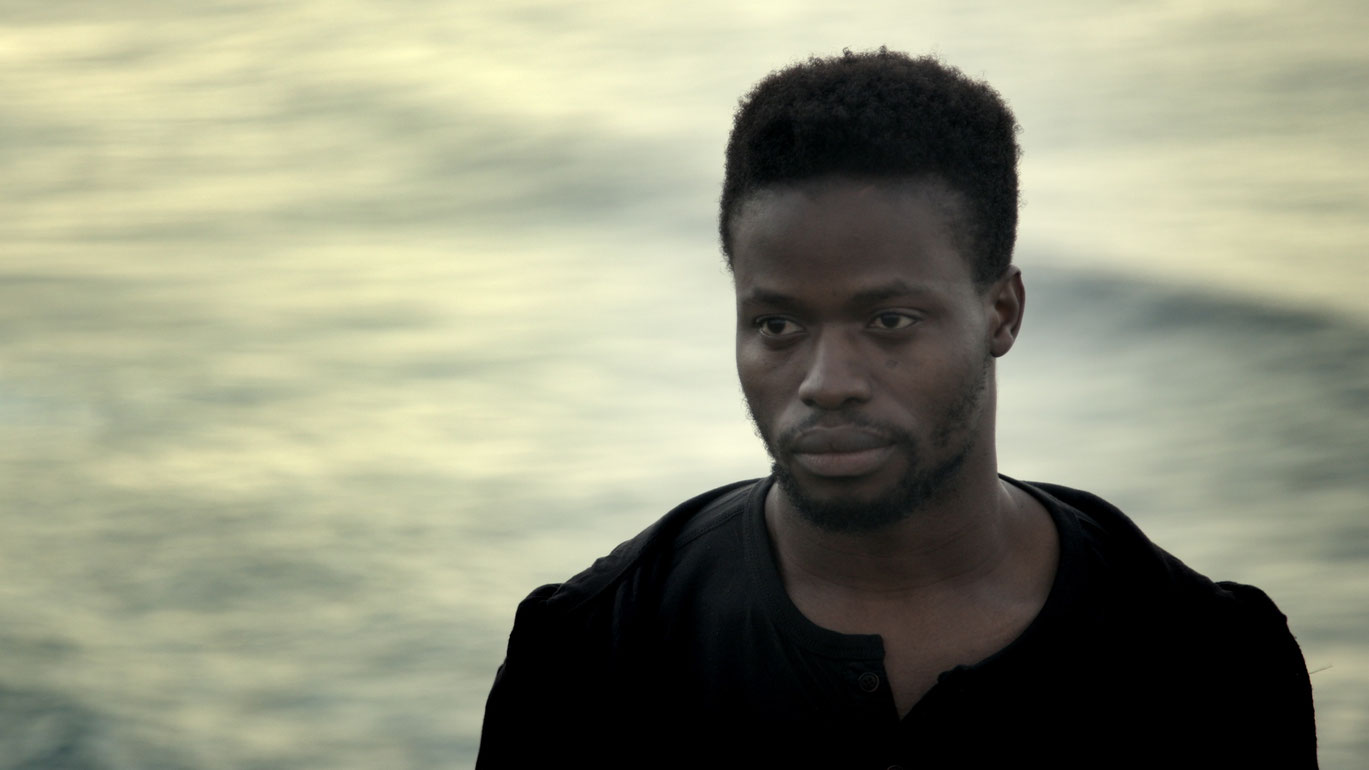When I Grow Up I Want to Be a Black Man
A black man runs through a field.
A black man runs on the beach.
A black man runs through a city.
The black man is always running, he is always chased, he is always running…
Running to save his life
A black man runs towards freedom.
On screen one, the voiceover is constructed through the ‘alphabet of violence’. Instead of relying on subjective voice-over recounting experiences (testimony) or theoretical and historical references (perhaps Frantz Fanon, Steve Biko, Patrice Lumumba or Malcolm X to name a few possibilities), the voice–over functions as a lexicon of violence.
The second screen functions to evoke potential, possibility, aspirations and ambitions of a future where the value of the black man in society is revitalised through a lexicon of freedom; he runs towards his freedom.
The script for ‘alphabet of violence’ and ‘alphabet of freedom’ was developed in collaboration with Kgafela oa Magogodi, a spoken-word artist, musician and playwright-director. The approach was to capture a visceral vocabulary of violence that also embraced the street and/or colloquial and the corporeality of violence on black subjects. Words-spoken and expressed in rhythm and with repetition by Magogodi produces in the mind’s eye images of violence that is denied in the visual representation shown on the screens.
On the other hand, the language of freedom resists fortified terms; those proselytized by liberation movements. Instead Magogodi includes words that pulse with possibilities of freedoms imagined and enlivening. Freedom in this alphabet is not an abstract construct but made tactile; tangible and physical – embodied as a state of being: with the freedom to float and with the lightness for flight.
When I Grow Up I Want to Be a Black Man
2017
South Africa, Austria
10 min

